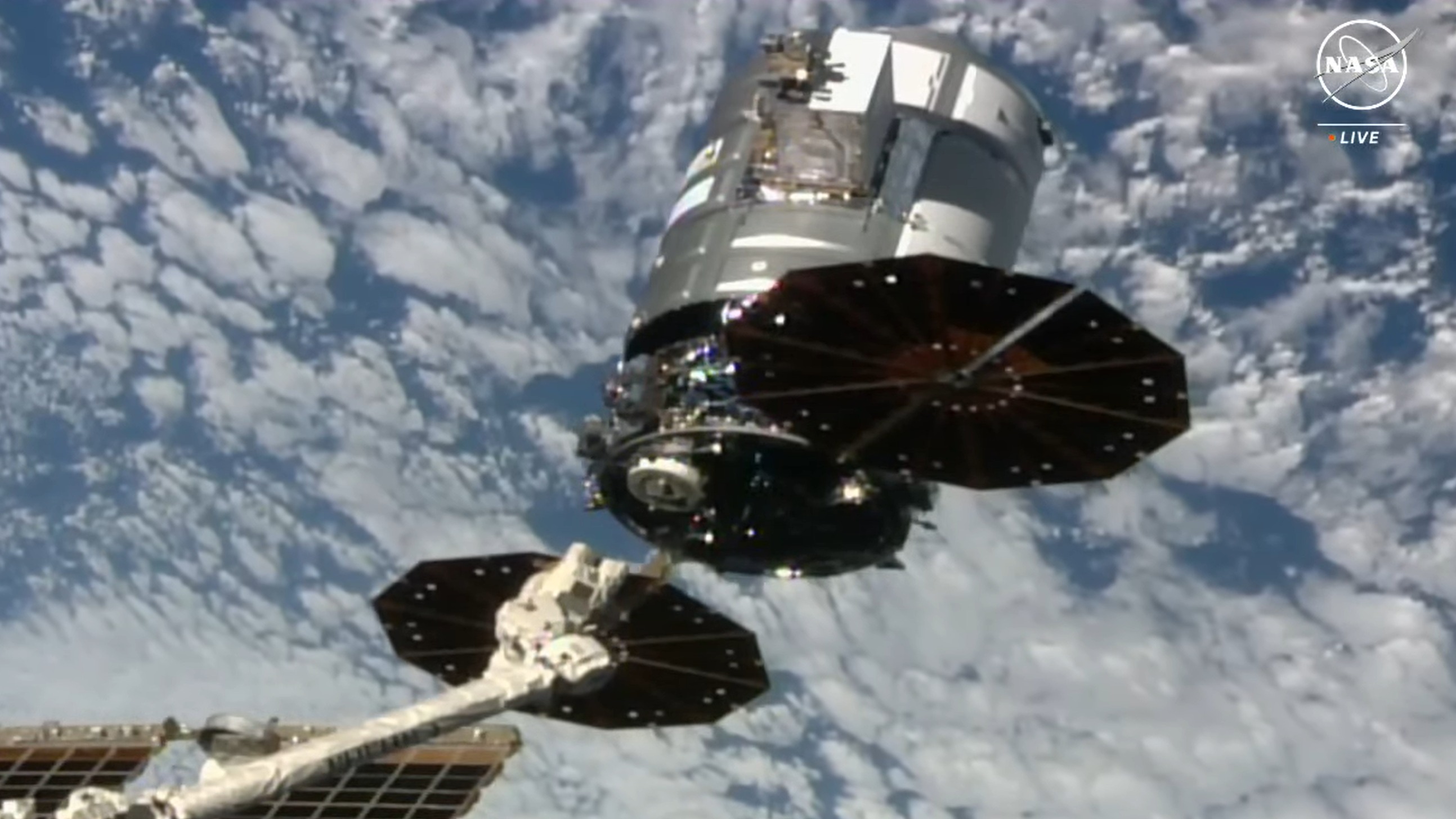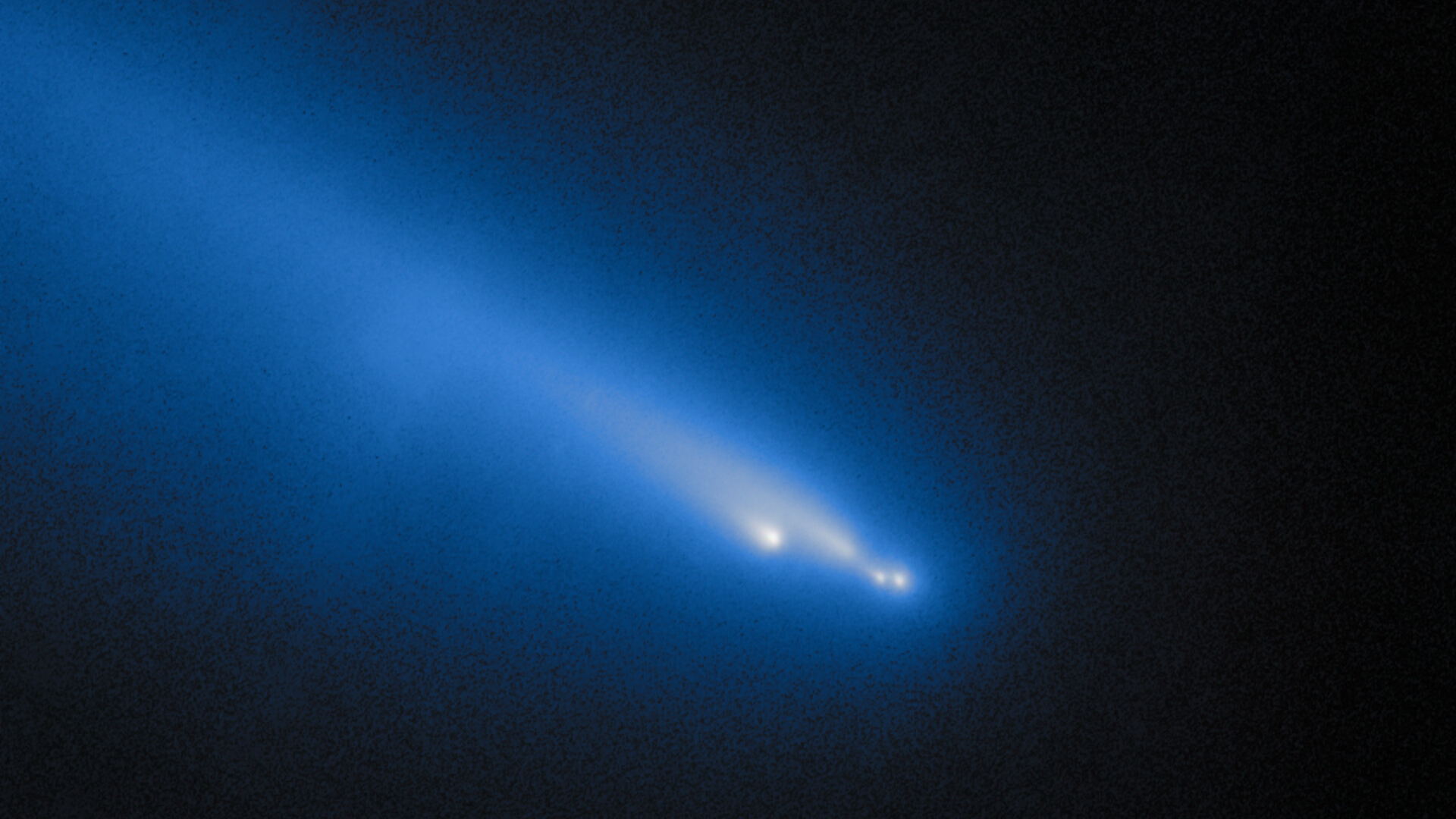Cygnus cargo craft departs the ISS Dec. 22 for fiery re-entry in new year (video)
Departure happened at 8:06 a.m. EST (1306 GMT).
A robotic cargo ship departed from the space station Friday (Dec. 22) on its way to a planned, destructive re-entry in Earth's atmosphere in early 2024.
Northrop Grumman's uncrewed Cygnus NG-19 spacecraft left the International Space Station (ISS) at 8:06 a.m. EST (1306 GMT) on Friday. The Canadarm2 robotic arm released the spacecraft over the north Atlantic ocean just one minute past the expected schedule, NASA official Rebecca Turkington said in a livestream on NASA Television.
"That was a beautiful release from up here," NASA Expedition 70 astronaut Loral O'Hara said on the livestream, about 10 minutes after the release. "Congratulations to everyone on the ground who supported this mission," O'Hara added from the ISS. "We still have a good view of Cygnus. It's beautiful."
Cygnus spent 4.5 months at the orbiting complex, following an Aug. 4 arrival that brought up 8,200 pounds (3,800 kilograms) of hardware, supplies, science, commercial products and other cargo, NASA officials said in a Wednesday (Dec. 20) release.
Related: Cygnus space freighter arrives at space station with 8,200 pounds of cargo aboard
NG-19, the 19th commercial resupply mission from Northrop Grumman, launched from NASA's Wallops Flight Facility in Virginia on Aug. 1. It was named after Laurel Clark, a NASA astronaut who died (with six other astronauts) during the Columbia space shuttle disaster in 2003. NG-19 was also the last mission to launch on a version of Northrop Grumman's Antares rocket that used a first stage built in Ukraine.
The spacecraft was docked to the U.S. Unity module on the ISS' Earth-facing port. To detach it, flight controllers on the ground instructed the robotic Canadarm2 to conduct the procedure, and then moved the freighter for release. NASA astronaut Loral O'Hara "will monitor Cygnus' systems upon its departure from the space station," NASA officials wrote in the release, prior to the maneuver taking place.
Breaking space news, the latest updates on rocket launches, skywatching events and more!
Cygnus' exact date to return to Earth has not been released. The spacecraft will perform undisclosed "secondary payload operations" before it is commanded in early January to plunge into Earth's atmosphere, where it will burn up with trash on board.
On NASA Television, Turkington confirmed that Cygnus has the go-ahead to do a new SAFFIRE fire experiment in the coming weeks. SAFFIRE, the Spacecraft Fire Experiments, allows for study of how fire behaves in microgravity in a safe environment. Cygnus has run versions of this spacecraft several times.
"This is the sixth and last of this series," Turkington said, "building on previous results to test flammability at different oxygen levels, and to demonstrate fire detection and monitoring — as well as post-fire cleanup capabilities."
The other commercial cargo craft currently active for NASA, SpaceX's Dragon capsule, can bring science back to Earth, as it is designed to survive the fiery trip through our planet's atmosphere and splash down in the ocean.

Elizabeth Howell (she/her), Ph.D., was a staff writer in the spaceflight channel between 2022 and 2024 specializing in Canadian space news. She was contributing writer for Space.com for 10 years from 2012 to 2024. Elizabeth's reporting includes multiple exclusives with the White House, leading world coverage about a lost-and-found space tomato on the International Space Station, witnessing five human spaceflight launches on two continents, flying parabolic, working inside a spacesuit, and participating in a simulated Mars mission. Her latest book, "Why Am I Taller?" (ECW Press, 2022) is co-written with astronaut Dave Williams.

